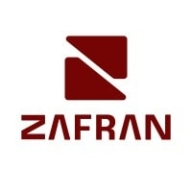


PortSwigger Burp Suite Enterprise Edition and SentinelOne Singularity Identity cater to different segments of cybersecurity solutions, primarily focusing on web application security and identity protection, respectively. SentinelOne Singularity Identity may have a more comprehensive feature set due to its focus on both identity security and endpoint protection, providing an edge over Burp Suite's specialized web application security features.
Features: PortSwigger Burp Suite Enterprise Edition is known for automated scanning, extensive security testing tools, and detailed vulnerability assessment capabilities. SentinelOne Singularity Identity provides AI-driven threat detection, real-time identity monitoring, and machine learning-powered security responses.
Room for Improvement: Burp Suite could enhance its scope by incorporating identity and endpoint security to increase its utility beyond web applications. Improved real-time threat response features could broaden its appeal. SentinelOne Singularity Identity might expand its functionalities for deeper web application security integration, offer more customizable threat detection rules, and reduce complexity in user interfaces.
Ease of Deployment and Customer Service: SentinelOne Singularity Identity provides cloud-based deployment with extensive support capabilities, streamlining implementation and troubleshooting for a diverse user base. Burp Suite Enterprise Edition offers a straightforward installation process with a focus on automated updates and seamless integrations, although it primarily centers on web security. SentinelOne tends to have a broader support approach compared to Burp Suite's more focused service model.
Pricing and ROI: SentinelOne Singularity Identity generally involves a higher initial investment, delivering significant ROI by addressing a more extensive range of cybersecurity aspects, which may suit enterprises seeking comprehensive security coverage. Burp Suite Enterprise Edition presents a cost-effective option for web-focused security requirements, providing notable value through its detailed vulnerability scanning and testing capabilities.



Zafran Security integrates with existing security tools to identify and mitigate vulnerabilities effectively, proving that most critical vulnerabilities are not exploitable, optimizing threat management.
Zafran Security introduces an innovative operating model for managing security threats and vulnerabilities. By leveraging the threat exposure management platform, it pinpoints and prioritizes exploitable vulnerabilities, reducing risk through immediate remediation. This platform enhances your hybrid cloud security by normalizing vulnerability signals and integrating specific IT context data, such as CVE runtime presence and internet asset reachability, into its analysis. No longer reliant on patch windows, Zafran Security allows you to manage risks actively.
What are the key features of Zafran Security?
What benefits can users expect from Zafran Security?
In industries where security is paramount, such as finance and healthcare, Zafran Security provides invaluable protection by ensuring that only exploitable vulnerabilities are addressed. It allows entities to maintain robust security measures while allocating resources efficiently, fitting seamlessly into existing security strategies.
Burp Suite Enterprise Edition is an automated web vulnerability scanner, designed to enable enterprises to scale security across their web portfolios and achieve DevSecOps. Automate trusted Burp scans, integrate web security testing with development, and free your application security to support software development.
Singularity Identity, a component of the Singularity platform, provides threat detection & response (ITDR) capabilities to defend Active Directory and domain-joined endpoints in real-time from adversaries aiming to gain persistent, elevated privilege and move covertly. Singularity Identity provides actionable, high-fidelity insight as attacks emerge from managed and unmanaged devices. It detects identity misuse and reconnaissance activity happening within endpoint processes targeting critical domain servers, service accounts, local credentials, local data, network data, and cloud data. On-agent cloaking and deception techniques slow the adversary down while providing situational awareness and halting adversarial attempts at lateral movement. Singularity Identity helps you detect and respond to identity-based attacks, providing early warning while misdirecting them away from production assets.
Singularity Identity’s primary use case is to protect credential data and disrupt identity-based attacks. The most valuable function of Singularity Identity is its ability to misdirect attackers by providing deceptive data to identity-based recon attacks. Additionally, it can hide and deny access to locally stored credentials or identity data on Active Directory domain controllers.
Singularity Identity also provides rapid detection and respond to identity attacks, capturing attack activity and feeding it directly to the Singularity platform’s Security DataLake for enterprise-wide analysis and response.
By implementing Singularity Identity, organizations benefit from enhanced security, reduced credential-related risks, and improved user productivity. It detects and responds to identity-based attacks, ensuring only authorized individuals can access critical identity data. With its cloaking capabilities to hide identity stored locally on endpoints or in the identity infrastructure and it’s ability to provide decoy results to identity-based attacks, organizations can effectively secure their sensitive or privileged identities, resulting in improved overall identity security.
We monitor all Vulnerability Management reviews to prevent fraudulent reviews and keep review quality high. We do not post reviews by company employees or direct competitors. We validate each review for authenticity via cross-reference with LinkedIn, and personal follow-up with the reviewer when necessary.